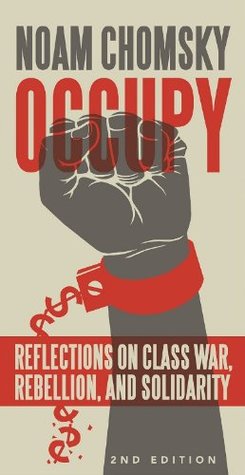Kindle Notes & Highlights
by
Noam Chomsky
Read between
May 18 - May 25, 2020
Adam Smith considered the possibility that merchants and manufacturers in England might decide to do their business abroad—invest abroad and import from abroad. He said they would profit, but England would be harmed. However, he went on to say that the merchants and manufacturers would prefer to operate in their own country—what’s sometimes called a “home bias.” So, as if by “an invisible hand,” England would be saved from the ravages of what is now called neoliberal globalization. That’s a pretty hard passage to miss. In his classic Wealth of Nations, that’s the only occurrence of the phrase,
...more
So, for example, Alan Greenspan, at the time when he was still “Saint Alan”—hailed by the economics profession as one of the greatest economists of all time (this was before the crash for which he was substantially responsible)—was testifying to Congress in the Clinton years, and he explained the wonders of the great economy that he was supervising. He said a lot of the success of this economy was based substantially on what he called “growing worker insecurity.” If working people are insecure, if they’re part of what we now call the “precariat,” living precarious existences, they’re not going
...more
The trouble with saying “the government backs off” is that it only feeds the libertarians. The wealthy and the corporate sector are delighted to have government back off, because then they get more power. Suppose you were to develop a voluntary system, a community type, a mutual support system that takes care of social security—the wealthy sectors would be delighted.
One of the most damaging forms of legislation is known as Right to Work law. It exists on the statute books of nearly half of American states, primarily in the South. Its main function is to prohibit the requirement that workers pay union fees as a condition of employment. This doesn’t prevent those who do not pay union membership fees from receiving the benefits of collective bargaining. The long-term effects of the legislation, as with most laws designed to restrict labor rights, is a lowering of wages and a worsening of safety and health conditions for workers. Regions that utilize these
...more
If you care about other people, that’s now a very dangerous idea. If you care about other people, you might try to organize to undermine power and authority. That’s not going to happen if you care only about yourself. Maybe you can become rich, but you don’t care whether other people’s kids can go to school, or can afford food to eat, or things like that. In the United States, that’s called “libertarian” for some wild reason. I mean, it’s actually highly authoritarian, but that doctrine is extremely important for power systems as a way of atomizing and undermining the public.
The Charter of the Forest, which was half the Magna Carta, has more or less been forgotten. The forest didn’t just mean the woods. It meant common property, the source of food, fuel. It was a common possession, so it was cared for. The forests were cultivated in common and kept functioning, because they were part of people’s common possessions, their source of livelihood, and even a source of dignity. That slowly collapsed in England under the enclosure movements, the state efforts to shift to private ownership and control. In the United States it happened differently, but the privatization is
...more


